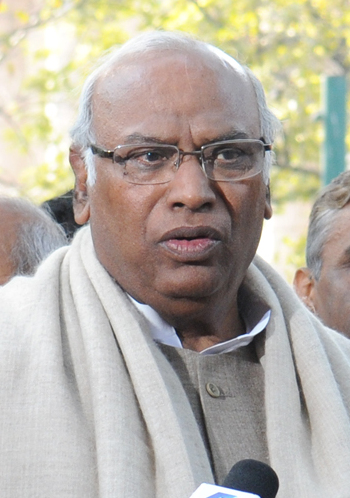By IPA Webdesk
Mallikarjun Kharge, president of the Indian National Congress, has accused Prime Minister Narendra Modi’s administration of pursuing a “faulty” foreign policy that is isolating the country and straining ties with neighbours. Speaking at the “Samajika Nyaya Samara Bheri” event in Hyderabad on 4 July, Kharge said that India now faces hostility from China, Pakistan and even Nepal, which is increasingly distancing itself from New Delhi.
Kharge highlighted the contrast between Modi’s foreign travels and his silence on domestic issues. He noted that the prime minister has visited 42 countries but has yet to visit Manipur, a state grappling with ethnic violence and civilian suffering. Kharge stated, “Modi has visited 42 countries, but has not yet gone to Manipur, where people are dying,” underscoring what he described as a misalignment in priorities.
He accused Modi of being more concerned with collecting accolades abroad than addressing urgent crises at home. “If someone gives Modi a cap or a medal, he will wear it and go around,” Kharge mocked, adding that the prime minister seems to value foreign recognition more than the plight of farmers and citizens.
Kharge broadened his critique to address the economic and constitutional implications of Modi’s policies. He claimed that over his 11-year tenure, Modi’s government has “ruined” the economy and “destroyed” the Constitution, although he provided no further elaboration during his speech. These charges reflect deep political divisions as the Congress seeks to frame the Modi administration as misguided and misgoverned ahead of future elections.
On diplomacy, Kharge cited deteriorating relations with China and Pakistan, and warned that Nepal’s attitude represents a sign of widening distrust in the region. His remarks come amid signs that Bangladesh–India relations are experiencing a “readjustment phase,” a characterization noted by Bangladesh’s adviser on foreign affairs Md Touhid Hossain on 26 June. Analysts say this phrase implies a subtle cooling in ties rather than a full diplomatic freeze.
Kharge’s comments follow earlier criticism directed at Modi’s reticence regarding the Israel–Iran conflict. On 23 June, Kharge urged the government to adopt a clearer stance, particularly in view of India’s significant reliance on Iranian oil imports. He argued that India, historically a major crude importer from Iran, must take a robust diplomatic stance rather than remain silent.
On 6 June, Kharge called on international leaders to hold Pakistan accountable for alleged support of terrorism, arguing that financial assistance from global lenders such as the IMF, Asian Development Bank and World Bank could bolster Pakistan’s military and thus undermine regional security.
Predictably, the BJP-led government rejected Kharge’s assertions. Deputy Chief Minister Keshav Prasad Maurya accused him and other Congress leaders of aligning with narratives favourable to Pakistan when questioning the success of Operation Sindoor—an Indian military operation across the border. Maurya described their criticism as unpatriotic and alleged that Congress was casting doubts on the armed forces’ credibility.
In Karnataka, ministers echoed this sentiment following a terror attack in Pahalgam in May. The Congress faced backlash for questioning the speed and nature of India’s response. Opposition leaders demanded transparency about intelligence failures, but ruling party figures claimed they were politicising national security.
Foreign policy analysts note that Kharge’s critique reflects deeper tensions in India’s diplomatic posture. Former national security adviser Shivshankar Menon described the current foreign policy as exhibiting “strategic incoherence” and lacking a coherent guiding framework. While the Modi administration has actively promoted its Act East policy and strengthened ties with ASEAN and East Asian partners, critics question whether these advances have offset strains with neighbouring South Asian countries.
India’s growing global footprint under Modi has included high-profile state visits and energetic participation in international forums. Yet, regional observers highlight that proximity diplomacy with immediate neighbours often receives less attention, potentially undermining stability in the neighbourhood.
Kharge’s assertions underscore a perception among opposition leaders that foreign engagements are overshadowing essential domestic responsibilities. His pointed mention of Manipur, a state beset by prolonged ethnic conflict since 2023, calls into question the government’s responsiveness to urgent internal crises. The absence of a prime ministerial visit has become emblematic of broader concerns about imbalanced governance priorities.
